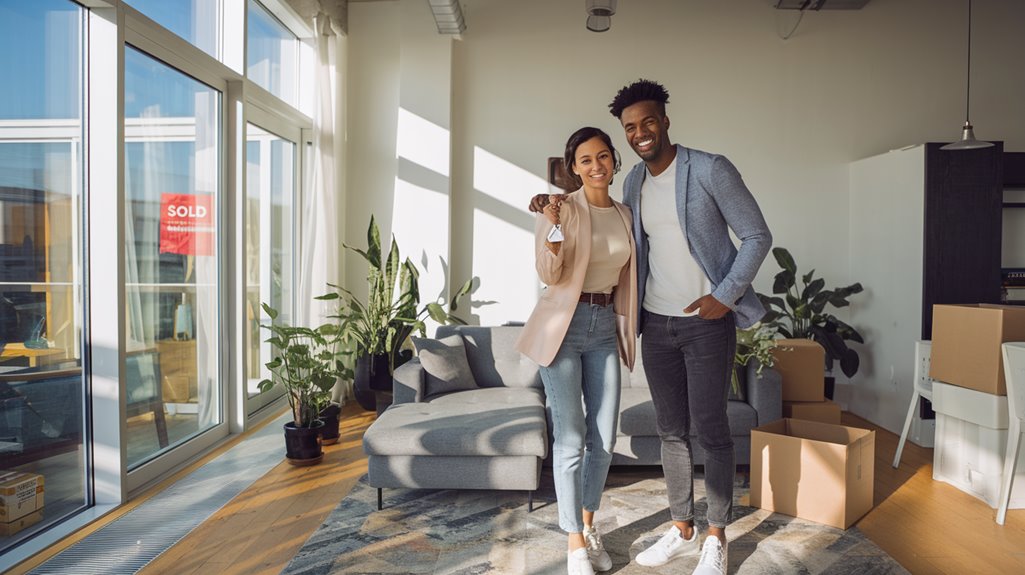Buying a home can help you build a better future for yourself and your family. When you pay your mortgage each month, you own more of your home. Houses usually grow in value over time, which means your home becomes worth more money. The government gives homeowners special tax breaks that help you save money. Your monthly payment stays the same, unlike rent which keeps going up. Studies show people who own homes save much more money than people who rent. You can even make extra money by renting out a room in your house. Owning a home is one of the best ways to build a strong money future.
Ready to start building equity in your own Michigan home? Get your personalized home loan quote today.
Building Equity Over Time
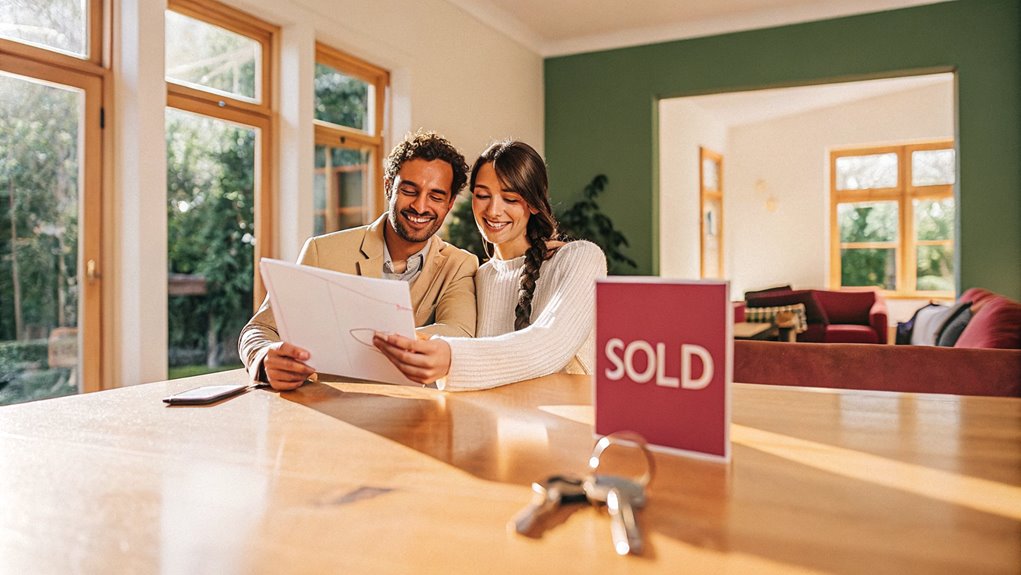
When you own a home, you build something called "equity." This means the part of your home that's truly yours grows bigger over time.
You build equity in three ways. First, each time you pay your house bill, you own a bit more of your home. Second, homes often get more valuable as time goes by – like when your town grows bigger and better. Third, fixing up your home can make it worth more money.
Think of it like a piggy bank that gets fuller each month. When you pay your bill, some money goes to the bank, and some helps you own more of your house.
Most homes gain value each year, even if you do nothing. And when you make your home nicer, like getting a new kitchen, it becomes worth even more.
Once you have lots of equity, you can use it like a savings account. You can borrow money when you need it, using your home's value to help you.
Michigan residents, unlock the door to your new home. Request your home loan quote from Treeside Financial today.
Tax Benefits for Homeowners
Buying a home can help you save money on taxes. You can take money off your taxes for the interest you pay on your home loan. This works for loans up to $750,000.
You can also save up to $10,000 on your taxes from what you pay in local taxes and home taxes.
When you sell your home, you might make money on the sale. The good news is you won't pay taxes on up to $250,000 of that money. If you're married, you don't pay taxes on up to $500,000.
To get this tax break, you must live in the home for at least two years out of the last five years.
You can also save money on taxes for other home costs. These include fees you pay when you first buy your home and monthly insurance costs.
All these savings make owning a home better for your wallet than renting.
Protection Against Rising Rents

When you buy a home with a fixed-rate loan, you know what you'll pay each month. Your bill stays the same year after year. This helps you plan for the future and feel safe about your costs.
People who rent don't have this peace of mind. Their rent goes up most years. In big cities, rent has gone up a lot in the last ten years. Some people now pay almost half more than they did before.
Think about it like this: If you buy a home, your payment in ten years will be just like it's today. But if you rent, you might need to pay much more money each month.
Having steady costs helps you save and keep your money safe.
Forced Savings Through Mortgage Payments
When you pay your monthly mortgage, you slowly become the true owner of your home. Think of it like filling up a piggy bank – every payment helps you own more of your house. This is different from paying rent, where the money just goes away each month.
Let's look at how your money grows:
After 5 years: You've saved $37,000
After 15 years: You've saved $142,000
After 30 years: You've saved $350,000
This works well even if you find it hard to save money. Your house becomes like a big savings account.
As time goes on, more of each payment goes toward making the house yours. Many families have used their homes to build money they can pass down to their kids.
Home Value Appreciation

Your house can grow in value over time, just like a piggy bank that gets bigger by itself. Most homes in America go up in price by about 4% each year. This means if your house is worth $100, it could be worth $104 next year.
This happens because cities grow and get better. When new stores, parks, and roads come to your area, your house becomes worth more money.
And when you fix up your home – like painting it or adding a new kitchen – it can be worth even more.
Think of it like a plant that grows taller over time. Your house's value can grow too, making you richer without you doing much work.
Even small changes in your neighborhood can make your home worth more money.
Creating Generational Wealth
Owning a home helps you build wealth for your whole family.
Your kids and their kids can get a big head start in life when you pass your home down to them. Think of it like planting a money tree that grows over time. The house becomes worth more money as years go by.
People who own homes end up saving much more money than people who rent – about 40 times more! This makes buying a home one of the best ways to help your family do well with money now and in the future.
Build Long-Term Family Assets
Buying a home helps families grow stronger and richer. Most families in America have a big part of their money tied to their home. When you buy a home, you help your kids and their kids have a better life.
Your home grows in value as time goes by. Each year, homes usually go up in price by about 3-4%.
As you pay your home loan each month, you own more of your home. This helps you save money that you can use later or give to your children.
You also pay less in taxes when you own a home, which means more money stays in your pocket.
Pass Wealth Through Generations
When you buy and take care of a home, you give your kids and their kids a big gift. A home helps families grow stronger and richer over time. Kids whose parents own homes do better in school and make more money when they grow up.
To help your family get the most from your home, keep it in good shape. Tell your kids how to care for it too.
Talk to a helper who knows about money and laws to make sure your home goes to your family without big taxes.
Your home can help your whole family have a better life. It can help them save money and feel safe about their future.
This gift can change your family's story for many years to come.
Real Estate Value Growth
When you buy a home, it helps you build money over time. Home prices go up most years. In fact, homes in the U.S. have gone up about 4% each year for the past 50 years. This means homes grow in value faster than many other things you can buy.
Where your home is makes a big difference. Homes in busy city areas often go up in value more than other places. If you fix up your home, it can be worth much more too. You can add new parts or make it look nicer.
Sometimes home prices go down, then back up. Smart buyers wait to buy when prices are low. Later, they can sell when prices are high to make more money.
You can also use the money your home is worth to buy more homes. This helps you make even more money over time.
If you learn about homes and wait patiently, you can make good money from owning them. Many people have done this before, and you can too.
Rental Income Opportunities
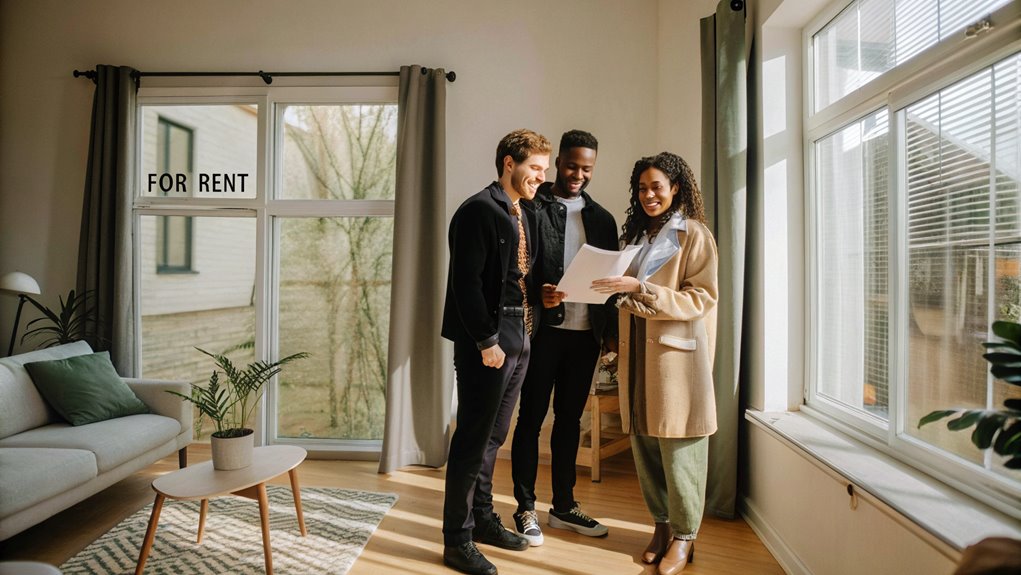
Want to make money from your home? You can rent out parts of it while you live there! This is called house hacking.
You can turn empty rooms or spaces into small homes that follow the rules in your area. These are called ADUs.
You have two ways to rent:
- Get long-term renters who stay for months or years
- Use apps like Airbnb for short stays
The money you get from rent can help pay your house bills.
This is a great way to save more money over time.
House Hacking Basics
Living in your home while making money is smart! You can rent parts of your house to help pay your bills. Many people do this and save big on their monthly costs.
Think about these ideas:
- Make your basement into a small home
- Rent rooms to nice people who work or study
- Turn your garage into a small house
- Share a room with visitors who need a short stay
Start by renting just one room. As you learn more, you can rent more space. You'll get better at being a landlord over time. This is a good way to start making money in real estate without spending lots of extra money.
When you rent parts of your home, you can cut your costs by half or more. Some people even make enough to cover all their house payments!
You still own and control your home, but now it helps pay for itself.
Accessory Dwelling Units
Having a small home inside your home can help you earn extra money. You can turn your basement, garage, or build a new space into what we call an ADU. This can bring in $800 to $2,000 each month from renters, based on where you live.
Before you start, you need to make sure your city allows ADUs. You'll need to get the right papers to build one. Your ADU must be safe and big enough to live in. It costs between $20,000 to $100,000 to build, but the rent money can pay this back in 2 to 5 years.
ADUs do more than make money. They give you room for family to live with you or space to work from home.
They also make your house worth more money – about 20 to 30% more. This makes them a good way to plan for your future.
Long-Term Vs Short-Term
Renting your home can work in two ways – for a long time or a short time.
If you rent to someone who stays for months or years, you get the same money each month. It's easier to manage since you deal with one renter.
If you rent for days or weeks, like a vacation home, you can make more money. But you'll work harder. You need to clean more often and talk to new people all the time.
With long rentals, you might get $1,000 each month from a $100,000 home. Short rentals in busy tourist spots can pay even more – sometimes double or triple that amount.
Short rentals work best near beaches, parks, or big cities where lots of people visit. Long rentals do better in quiet areas where people live and work all year.
Think about where your home is and how much time you can spend taking care of it. This will help you pick the best way to rent.
Fixed Monthly Housing Costs
When you buy a home with a fixed-rate loan, you know what you'll pay each month. Your main costs won't go up over time. This is much better than renting, where the price often goes up every year.
Think of it like this: If you rent, your costs might jump up by a lot each year. But when you own a home, your monthly payment stays the same for as long as you have your loan.
While you might pay a bit more for taxes and home care over time, it won't be as much as rent hikes.
People who own homes usually spend less of their money on housing than renters do. Owners use about 25 cents of each dollar for their home. Renters use 30 cents or more.
As time goes by, renters pay more and more while owners keep paying the same amount.
Mortgage Interest Deductions
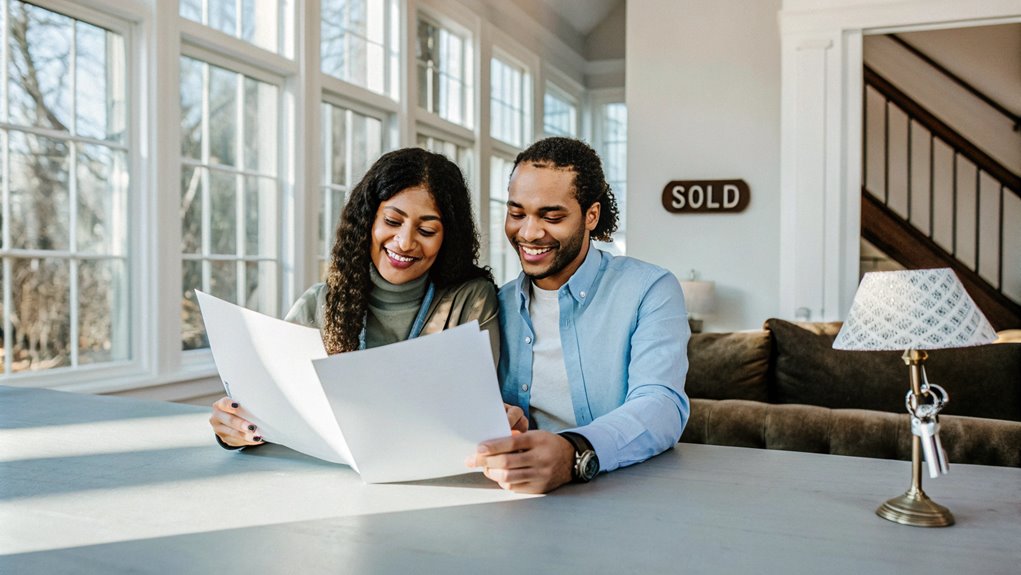
Buying a home can help you save money on taxes. When you pay your mortgage, part of each payment is interest. You can subtract this interest from your taxes if you list out all your tax deductions.
You can save money on:
- Interest on loans up to $750,000 for homes bought after December 15, 2017
- Interest on your main home and a vacation home
- Special fees you pay to get a lower interest rate
- Interest on loans used to fix up your home
This tax break helps cut down your monthly costs. It puts more money in your pocket while you build up value in your home.
Property as Retirement Security
When you own your home, it helps you save for when you stop working.
Think of it like a piggy bank that grows bigger over time. Each year, homes often gain more value – about 3 to 4 cents for every dollar.
By the time you're old, your home can be worth a lot more than when you bought it. If you pay off your house, you won't have to pay rent anymore.
You can also use your home to get money later if you need it. You might move to a smaller home or get a special loan called a reverse mortgage.
Asset Growth Over Time
Your home is more than just a place to live – it helps you save money for when you grow old. Think of it like a piggy bank that gets bigger over time. Each time you pay your house bill, you own more of your home.
As the years pass, homes tend to cost more money. For the past 50 years, homes have been worth about 3% more each year. That means if you buy a home today, it will likely be worth more when you sell it later.
You can make your home worth even more by fixing it up. Paint the walls, put in new floors, or add a room. These changes help your home grow in value faster.
If you ever need money, you can use some of what you own in your home. It's like having a backup savings account that's there when you need it.
Home Equity After Retirement
Your home can help you in retirement when it's paid off. You have choices that can make your life easier.
You can stay in your home and not pay a mortgage anymore. This saves you money each month. But remember you still need to fix things that break.
You could sell your big home and buy a smaller one. This gives you extra money to spend. Moving costs some money though.
You might get a special loan called a reverse mortgage. This gives you money each month. But it means you owe more on your home over time.
Some people rent out their home. This brings in money each month. But you have to take care of renters and fix problems.
This table shows your choices:
| What You Can Do | Money Benefit | What to Think About |
|---|---|---|
| Stay Home | No House Payment | Fix-up Costs |
| Get Smaller Home | Money From Sale | Moving Costs |
| Get Special Loan | Monthly Money | Less Home Value |
| Rent It Out | Extra Money | Being a Landlord |
Your home can help you live better in retirement. You can pick what works best for you based on what you need.
Leveraging Home Equity
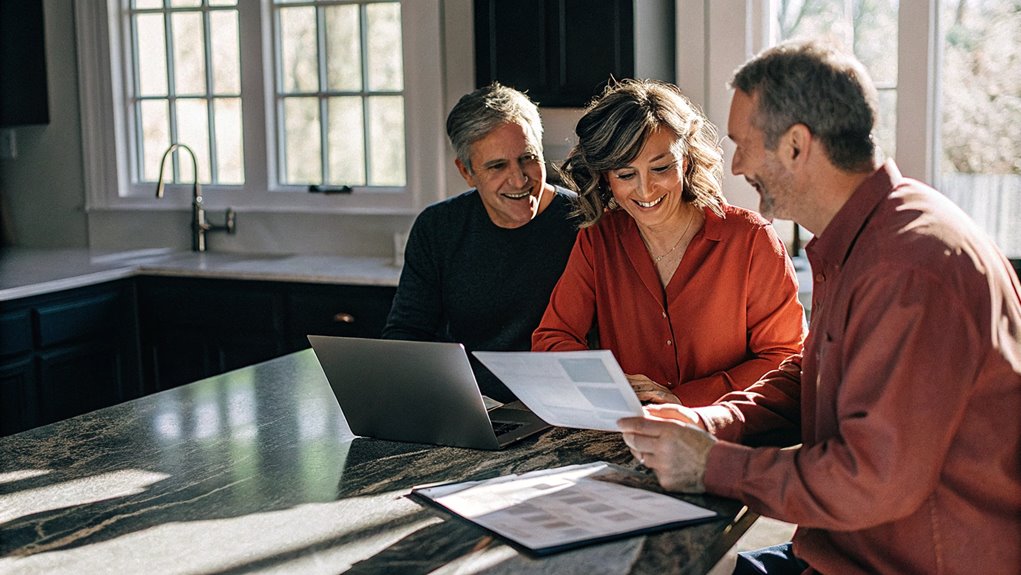
Your home grows in value over time, giving you money you can use. Think of it like a piggy bank that gets bigger as you pay your mortgage. You can use this money in different ways to help you.
You might:
- Fix up your home to make it worth more
- Pay off credit card bills that cost you too much
- Help pay for school
- Buy another house or start a business
Be smart when using your home's value. Your house is worth a lot, so think carefully about how you use this money.
Capital Gains Tax Advantages
When you own a home, you can save money on taxes when you sell it. If you're single, you won't pay taxes on up to $250,000 in profit. If you're married, you won't pay taxes on up to $500,000 in profit.
To get this tax break, you must live in your home for at least two years out of the last five years. This helps you keep more money when you sell your home. You can use this money to buy a new home or save it for other things you want to do.
This makes owning a home a great way to grow your money. When you sell other things like stocks, you have to pay taxes on the money you make. But with a home, you can keep more of the profit for yourself.
Real Estate Investment Returns
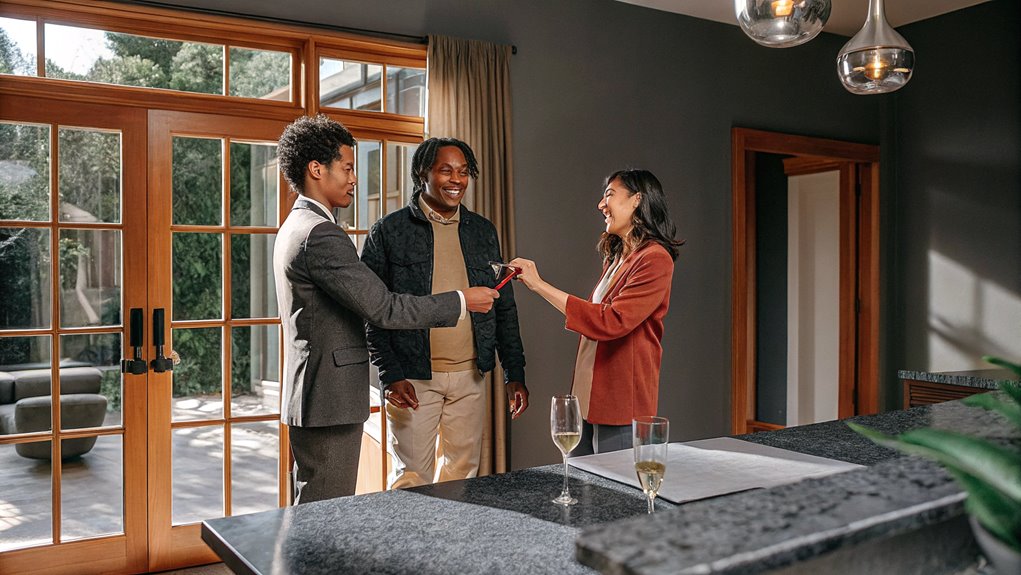
Buying a home or property can help grow your money over time. When you own real estate, you can make money in two ways: your house gets more valuable, and you can rent it to others. For every $100 you put in, you might get back $7 to $10 each year. This is better than many other ways to save money.
When the stock market goes down, houses often keep their value. Since 1940, house prices have gone up so much that they double in price about every 20 years.
You can make money from your own home by:
- Renting out your basement
- Letting someone rent a spare room
- Buying a second home to rent out
Houses in big cities tend to grow in value by 3-5% each year. The government also lets you pay less taxes when you own property, which helps you save more money.
Financial Independence Through Property
Owning a home can help you become free from money worries. People who own homes have much more money saved up than people who rent. Each time you pay your house bill, you put money into your future. It's like having a piggy bank that gets bigger over time.
As houses become worth more money, you can use yours to make even more money or save for when you stop working.
You can speed up your path to having lots of money by being smart with your home. You could live in part of your house and rent out the other parts. Or you could use the value of your house to buy more houses.
The best part is that owning a home helps you pay less in taxes. When you own a home, you're not just getting a place to live – you're building a better future for yourself.

